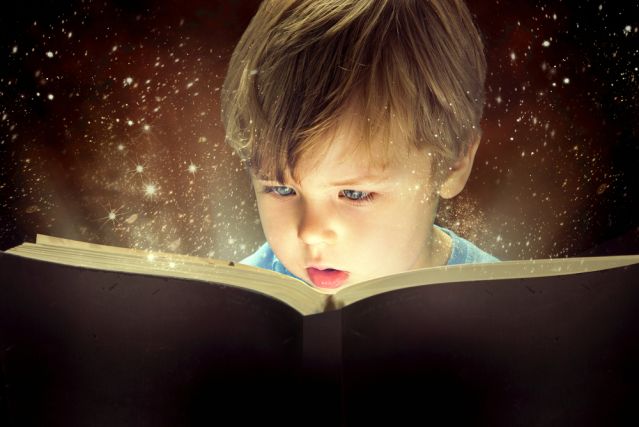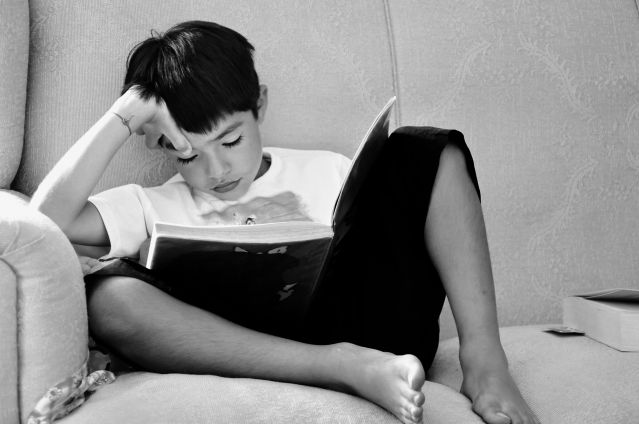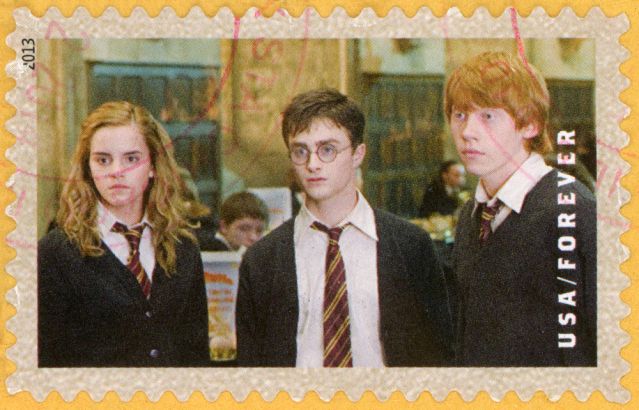Bias
Does Reading Harry Potter Books Reduce Prejudice?
Readers who identify with Harry Potter show less prejudice against minorities.
Posted May 2, 2015

According to a recent study, "The Greatest Magic of Harry Potter: Reducing Prejudice," young people who've read the Harry Potter books—and identify with Harry as the main protagonist—are less likely to be biased or prejudiced against minority groups.
The team of researchers from Italy found that reading Harry Potter books improves children’s attitudes toward stigmatized groups that included: immigrants, refugees, and members of the LGBT community.
The researchers carried out their experiments with elementary school, high school, and college students in Italy and the United Kingdom. In a press release, lead author Dr. Loris Vezzali, a professor at the University of Modena and Reggio Emilia, said:
Harry Potter empathizes with characters from stigmatized categories, tries to understand their sufferings and to act towards social equality. So, I and my colleagues think that empathic feelings are the key factor driving prejudice reduction. The world of Harry Potter is characterized by strict social hierarchies and resulting prejudices, with obvious parallels with our society.
Harry has meaningful contact with characters belonging to stigmatized groups. He tries to understand them and appreciate their difficulties, some of which stem from intergroup discrimination, and fights for a world free of social inequalities.
Literary critic, Christopher Hitchens, once praised J. K. Rowling for “unmooring” children’s books from “dreams of wealth and class and snobbery…and giving us a world of youthful democracy and diversity, in which the humble leading figure has a name that…could as well belong to an English labor union official.”

Identifying With Harry Potter as a Protagonist Can Reduce Prejudice
In the first part of the study, the researchers enlisted 34 Italian fifth graders who filled out a questionnaire about their attitude toward immigrants. Then, they read excerpts from Harry Potter books that had to do with prejudice or bigotry over the course of six weeks.
After reading the books, the students answered the questionnaire about immigrants again, and showed increased empathy toward immigrants—especially if they also identified strongly with the leading protagonist of the story, Harry Potter himself.
According to the researchers, the young Italian children who read Harry Potter were affected by “the positive attitudes and behaviors of Harry Potter toward stigmatized fantastic groups.” Living vicariously through the characters in the novel impacted their attitudes towards marginalized people in real life.
In the second part of the study, the researchers worked with a group of older college students in England, and examined their attitudes toward refugee groups. The researchers found that reading Harry Potter books had prejudice-reducing effects regarding refugees.
Muggles, Mudbloods, Halfbloods, and Purebloods Have Real World Parallels
There are many groups in the Harry Potter series that Harry empathizes with innately because he wasn't born into the elite ruling class and isn't part of the aristocracy. For example, Harry becomes an ally to a disenfranchised group known as “mudbloods” who represent a hodgepodge of hereditary backgrounds.
Harry Potter is sympathetic to anyone who is stereotypically treated as "less-than" in mainstream society. As a gay person, I've always identified with Harry's empathy for the underdogs of the world or anyone who is being treated like a second-class citizen.
The “muggles” are outcasts in the world of wizards because they lack any magical ability. The “mudbloods” are wizards and witches whose ancestors aren't from a "pure" bloodline of wizardry. The archvillain, Lord Voldemort, believes that magical powers should only be bestowed upon “pure-blood” wizards and witches. Lord Voldemort represents a Hitler-esque racist in the Harry Potter universe.
Voldemort is the ultimate scoundrel. He promotes a "superior" tribe of “pure-blooded” witches and wizards and strives to have the mudbloods alienated and ostracized. The researchers point out that there are parallels between the villainous Lord Voldemort and fascists like Adolf Hitler.
Throughout the Harry Potter series, children can put themselves in the shoes of outsiders and underdogs like the “mudbloods” which allows readers to experience what racism and homophobia feel like on a visceral level. By having a first-hand experience of the intolerance and unfairness against fictional minority groups, the researchers observed a reduction of prejudice against immigrants and gays in real-life scenarios.

Reading Harry Potter Can Improve Theory of Mind
A broad range of recent studies show that turning off the television and reading fiction instead can: improve a child's brain function, mental imagery, imagination, theory of mind (ToM), and make a child more empathetic.
Theory of mind is the ability to attribute mental states—beliefs, intents, desires, pretending, knowledge, etc.—to oneself and others and to understand that others have beliefs, desires, and intentions that are different from one's own.
Last week, I wrote a Psychology Today blog post, One More Reason to Unplug Before Bedtime. The post was inspired by Dr. John Hutton's findings that were presented in a lecture titled, "Parent-Child Reading Increases Activation of Brain Networks Supporting Emergent Literacy in 3-5 Year-Old Children: An fMRI Study" at the April 2015 Pediatric Academic Societies (PAS) annual meeting in San Diego. In a press release, Hutton described the research saying,
We are excited to show, for the first time, that reading exposure during the critical stage of development prior to kindergarten seems to have a meaningful, measurable impact on how a child's brain processes stories and may help predict reading success. Of particular importance are brain areas supporting mental imagery, helping the child 'see the story' beyond the pictures, affirming the invaluable role of imagination.
Recently, I wrote another Psychology Today blog post, Can Reading a Fictional Story Make You More Empathetic? The post is based on a study from Carnegie Mellon University which found that reading a chapter of “Harry Potter and the Sorcerer’s Stone” lit up the same brain regions that would be involved in watching someone moving—or flying on a broom—in the real world.
The November 2014 study, “Simultaneously Uncovering the Patterns of Brain Regions Involved in Different Story Reading Subprocesses," was published in the online journal PLOS ONE.
The neuroscientists at Carnegie Mellon mapped the brain while people read fiction and found that the same brain networks are engaged while imagining a fictional story in your mind’s eye as when you witness it in real life. When you are engaged in reading a fictional story your brain is literally living vicariously through the characters in the story at a neurobiological level which can make children more empathetic to another person's pain and suffering.
A 2013 study, "Reading Literary Fiction Improves Theory of Mind," was published in the journal Science. The researchers found that reading literary fiction—as opposed to popular fiction or nonfiction—results in increased empathy and theory of mind.
Interestingly, another 2013 paper titled, “The Relation Between Television Exposure and Theory of Mind Among Preschoolers,” published in the Journal of Communication found that watching too much television reduces theory of mind in children.
The researchers of the study found that preschoolers who have a TV in their bedroom and are exposed to more background TV have a weaker understanding of other people's beliefs and desires, as well as, reduced cognitive development. I wrote about these findings in a Psychology Today blog post titled, One More Reason to Unplug Your Television.

Conclusion: Reading Fiction Can Combat Prejudice In the Real World
Loris Vezzali believes that the fantasy of fiction may be an especially effective way to reduce prejudice in the real world because novels typically don't feature actual marginalized groups. Playing out various scenarios of discrimination in a fictional universe avoids the potential bias, defensiveness, and self-righteousness that can surround being "politically correct" or having subconscious prejudices.
A few years ago, J.K. Rowling made strides to break stereotypes and reduce homophobia in the real world with three simple words: "Dumbledore is gay."
In a recent Twitter exchange with a Harry Potter fan, Rowling continued her efforts to reduce LGBT prejudice. When a fan tweeted,"Thank you so much for writing Harry Potter. I wonder why you said that Dumbledore is gay. I don't see him that way." Rowling simply responded, "Maybe because gay people just look like... people?"
In December 2014, Rowling reiterated her support of LGBT students in a Tweet saying: "It's safe to assume that Hogwarts had a variety of people and I like to think it's a safe place for LGBT students."
In an interview with Scientific America Vezzali concluded, “Unfortunately the news we read on a daily basis tells us we have so much work to do! But based on our work, fantasy books such as Harry Potter may be of great help to educators and parents in teaching tolerance.”
© Christopher Bergland 2015. All rights reserved.
Follow me on Twitter @ckbergland for updates on The Athlete’s Way blog posts.
The Athlete’s Way ® is a registered trademark of Christopher Bergland.




